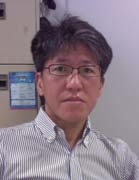
IMCE
Institute for Materials Chemistry and Engineering, Kyushu University
九州大学
先導物質化学研究所

LAST UPDATE 2017/02/25
-
研究者氏名
Researcher Name狩野有宏 Arihiro KANO
准教授 Associate Professor -
所属
Affiliation九州大学 先導物質化学研究所
物質基盤化学部門・生命有機化学分野
Institute for Materials Chemistry and Engineering, Kyushu University
Advanced Organic Synthesis -
研究キーワード
Research Keywords腫瘍生物学・免疫学
生理活性物質の機能・機構解析
新規糖鎖材料開発
Tumor Biology・Immunology
Study of Function and Machinery of Bioactive Substances
New Basis of Sugar Material for Bioactive Reaction
- 研究テーマ
Research Subject -
癌細胞免疫制御因⼦の探索と機構解析
Exploration of Immune Regulatory Factors involved in Tumor Development
研究の背景 Background of the Research
免疫は⾃⼰と他者を識別するシステムでありますが、本来⾃⼰組織であったがんの出現も監視している(CancerImmuneSurveillance;がん免疫監視)と考えられ、がん抗原の探索などが⾏われてきました。また、がんがこの免疫監視システムを種々の⽅法で回避し、これを繰り返すことにより、最終的に悪性化に⾄るという考えは、CancerImmunoediting(がん免疫編集)というコンセプトで現在受け⼊れられています。このなかでがんの排除に重要な働きをしている障害性T細胞の出現を、がんが積極的に抑制しているということが近年わかってきました。がんによるT細胞制御機構はいくつか提案されていますが、そこに関わる制御因⼦や細胞などより詳細な機構解明が望まれます。
The concept of cancer immune surveillance indicates that immune cells recognize and eliminate continuously arising nascent transformed cells. Tumor cells evade immune surveillance and eventually acquire metastatic ability, so now the concept is expanded to “cancer immunoediting”. Particularly, recent advances in tumor immunity suggest that tumor cells much actively suppress T cell activation. Revealing of the detailed machinery of T cell regulation along with tumor development is expected.
研究の目標 Research Objective
種々の癌細胞をマウスに移植後、脾細胞を単離し免疫活性化状態を調べた結果、腫瘍の増⼤に伴って著しく活性化が抑制されることが判明しました。そこでこの抑制因⼦の探索とその制御機構の解析を⾏っています。これまでの検証の結果、既報の多くのがん細胞分泌性タンパク質の関与を否定する結果を得ています。また他の低分⼦性免疫抑制活性も⾒いだしており、その責任分⼦の構造決定を⽬差しています。本研究成果は新しい観点からの抗がん剤開発につながるものと考えられます。
I found that tumor cells produce immune regulatory factors through analyzing activation of spleen cells isolated from tumor-bearing mice. Now, we are exploring immune regulatory factors and these regulatory mechanisms. So far, we have obtained the results that deny the participation of the several well-known cytokines that suppress immune activation in our observations. We have also found low molecular weight-mediated immune suppressive activities, and aim to determine the responsible compounds for it. We expect that this study would open a window for developing anti-cancer drugs from a new aspect.
研究図Figures

論文発表 / Publications
Kano, A. Tumor cell secretion of soluble factor(s) for specific immunosuppression. Sci Rep 5, 9 March (2015).
研究者連絡先 / HP
- kano
 ms.ifoc.kyushu-u.ac.jp
ms.ifoc.kyushu-u.ac.jp - http://www.cm.kyushu-u.ac.jp/dv01/dmstj.html